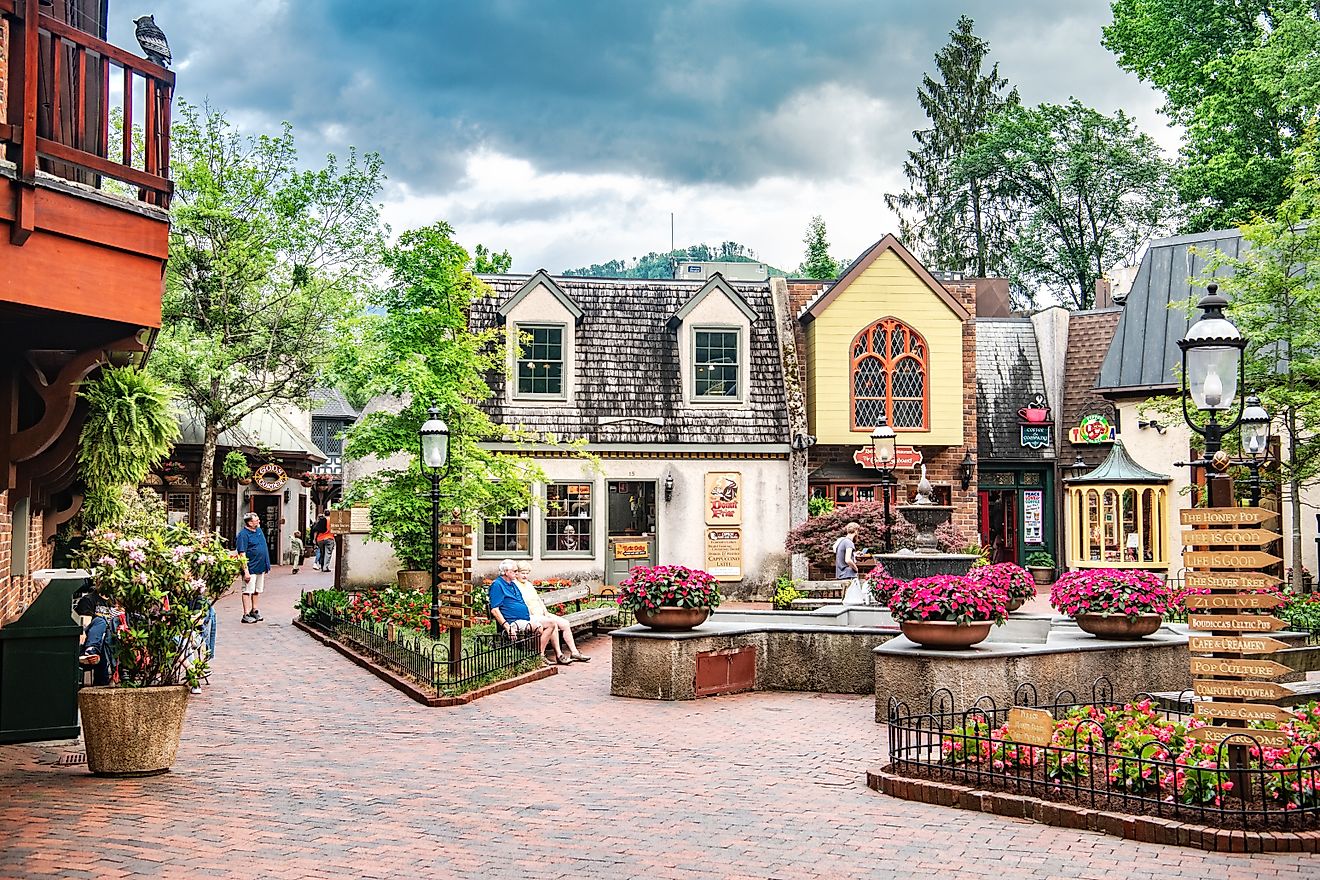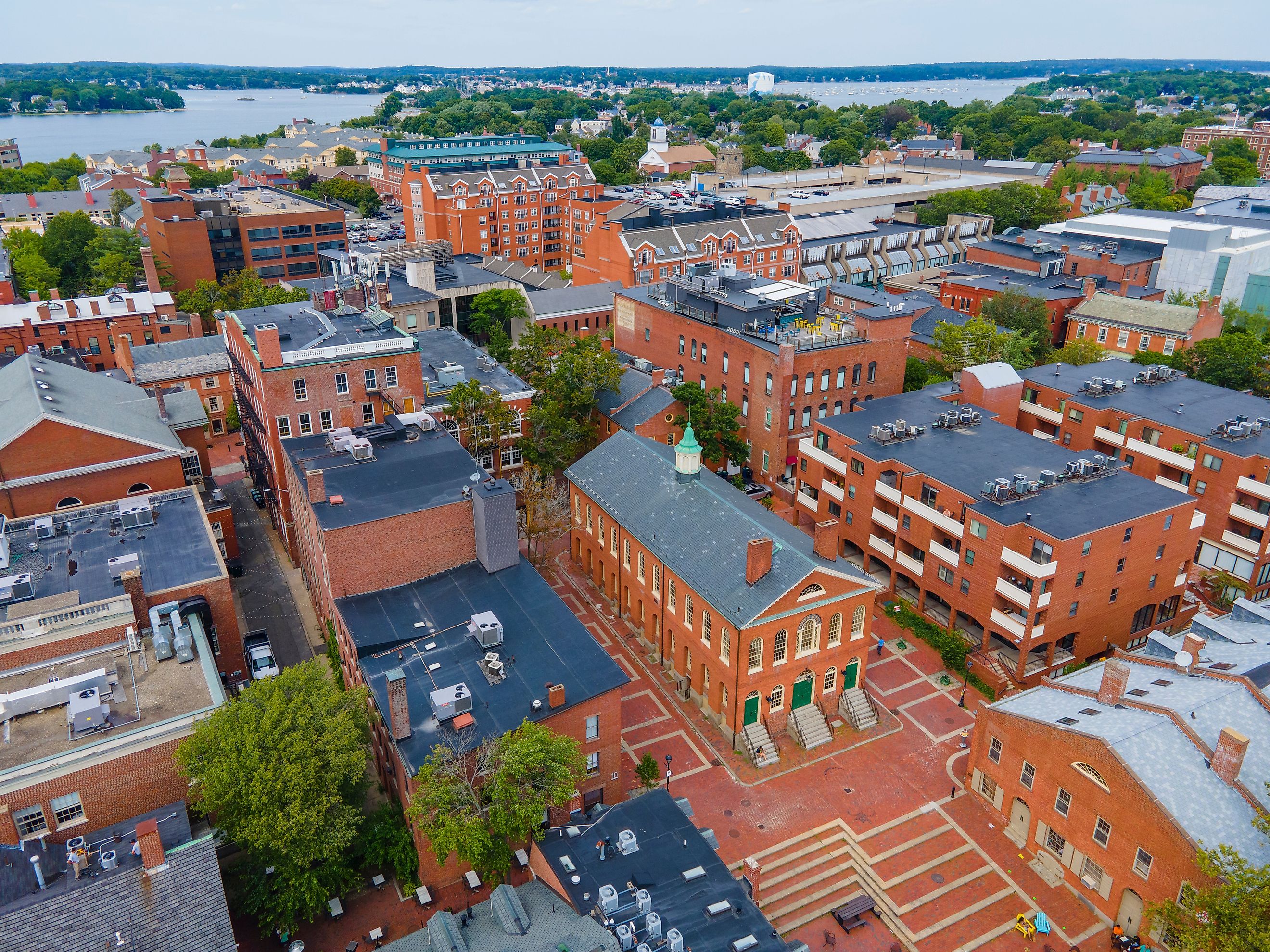
11 Towns in Massachusetts that Transport You to the Past
Massachusetts is a state where history comes alive, offering a unique window into America’s early days. With roots stretching back to the 1600s, the state is home to countless towns that have preserved their past in remarkable ways. From the seafaring legacy of Gloucester to the literary landmarks of Concord, each town holds stories that shaped the nation. Whether you're walking through colonial-era streets, exploring Revolutionary War sites, or stepping into the homes of some of America’s greatest authors, these destinations feel like stepping into a time machine. Here are 11 towns in Massachusetts that truly transport you to the past.
Gloucester
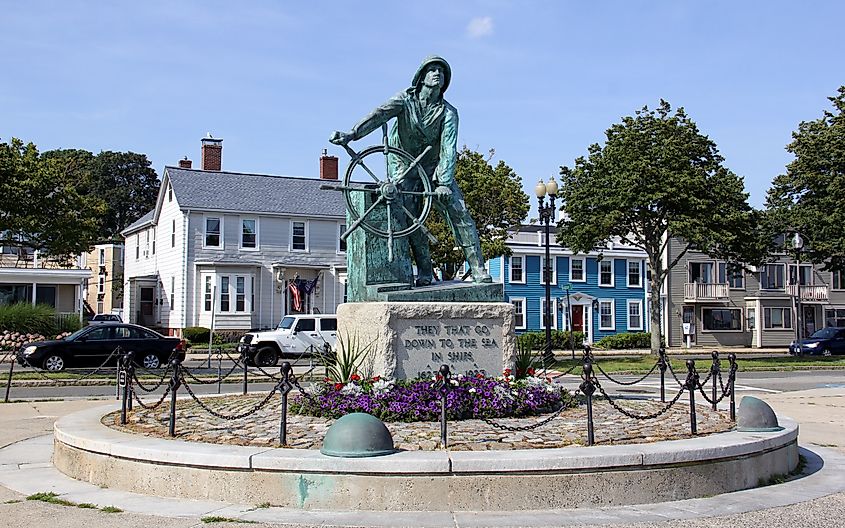
Rich in maritime history, Gloucester is home to America’s oldest seaport, its settlement dating back to the early 1600s. The coastal city began when settlers arrived from Dorchester, England, to establish a fishing and trade plantation. Those interested can embark on a historical journey through Gloucester with a Historic Middle Street Walking Tour. The tour covers an ever-evolving neighborhood packed with four centuries of history, including the 1764 Saunders House that makes up part of the Sawyer Free Library. While exploring the downtown area of Gloucester, be sure to visit the Cape Ann Museum to view exhibits on the fishing and granite industries. Gloucester features not only breathtaking beaches and sunsets but also a 1920s castle built by a scientist that houses an impressive pipe organ consisting of 8,400 pipes. The Hammond Castle Museum sits high, overlooking the Atlantic Ocean.
Salem
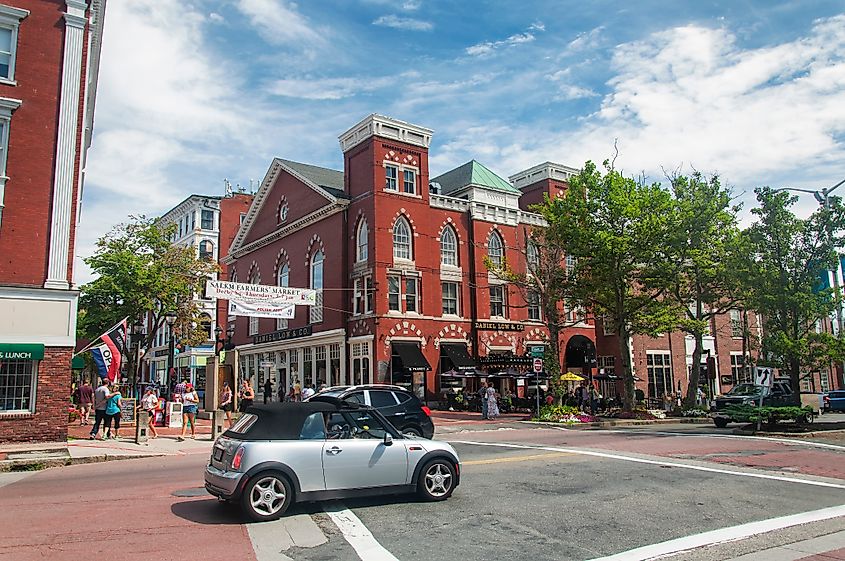
The town of Salem is located along the Atlantic Ocean northeast of Boston. Notoriously known for the 1692 witch trials, Salem is one of Massachusetts's oldest towns and is home to several buildings with origins dating back to the 1600s. One of the best ways to journey into Salem's past is to explore The Salem Heritage Trail, a self-guided walking tour that introduces visitors to several of the city's historical sites. These sites include one of the oldest museums in the country, The Peabody Essex Museum. The tour covers the Witch History Museum and the Salem Witch House, the former home of Judge Jonathan Corwin, who had direct ties to the witch trials. Also along the tour is the oldest surviving municipal structure in the city, the Old Town Hall in Derby Square.
After the history, visitors can recharge their batteries with a meal at The Babe, a lovely eatery in town. Or, book a room at The Salem Inn for a comfortable stay surrounded by local tales.
Concord
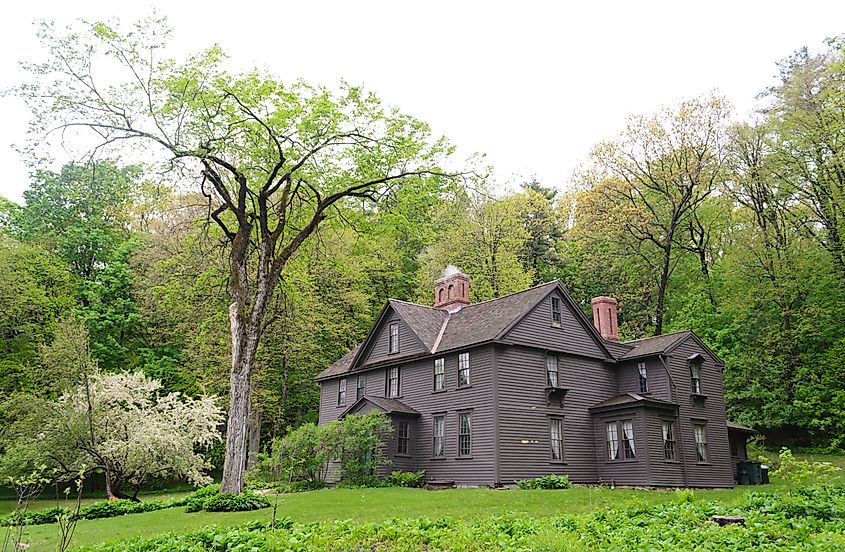
Concord brings the past alive and a closer look into the lives of some of America’s most famous literary figures. The city of Concord is situated along the Concord River and is in Middlesex County. When checking out Concord, visit the Wayside, a home built in the 1700s where authors Louisa May Alcott and Nathaniel Hawthorne once lived. For a more direct view of the past, one can visit the Concord Museum which boats hundreds of artifacts and exhibits.
Nearby is the Ralph Waldo Emerson House, the home of the famous American poet and essayist, where he resided from 1835 to 1882. A little over two miles northeast is the Thoreau Farm, the birthplace of Henry David Thoreau. People can see where the author penned his ideas and even rent Thoreau’s birth room as a peaceful setting for a private Writer’s Retreat.
Newburyport
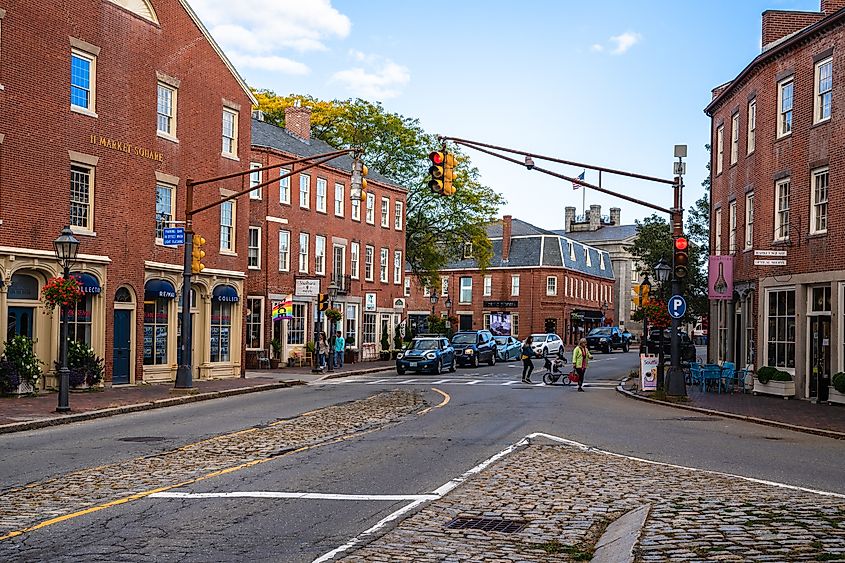
Settled in 1635, Newburyport is well known for its past in shipping and shipbuilding. Newburyport sits on the Merrimack River, north of Boston. It has a wealth of history and is the birthplace of the U.S. Coast Guard. Amongst Newburyport’s historical treasures is the Market Square Historic District. Recognized on the National Register of Historic Places, the buildings in this district feature Federalist-era architecture. In this area lies the Custom House Maritime Museum, highlighting the maritime heritage of the Merrimack Valley.
Another of the city’s historic sites is the Newburyport Harbor Light. The structure was first lit in 1788 with a lantern burning whale oil and was the 13th lighthouse built in the U.S. Initially named the Revenue Cutter Service, the U.S. Coast Guard Station Merrimack River opens its doors annually during Newburyport’s Yankee Homecoming festival. Visitors can tour the boats, meet the crew, and see up close where the U.S. Coast Guard first began.
Sandwich
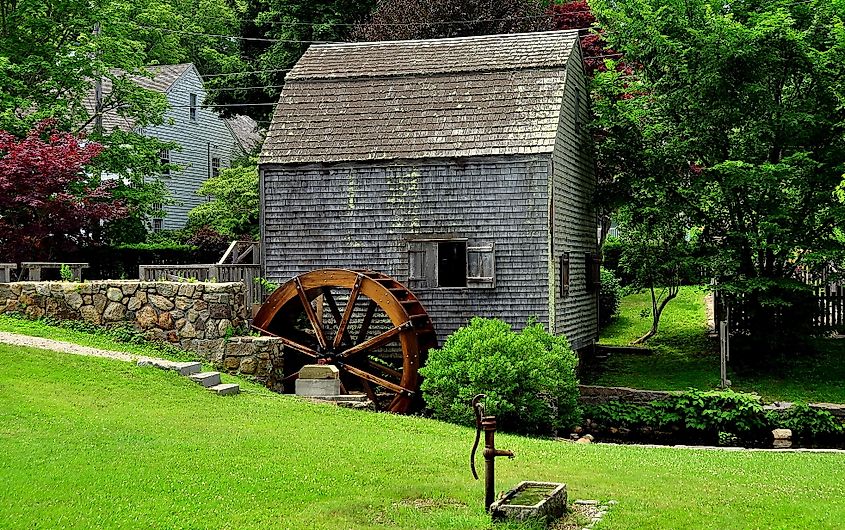
Cape Cod’s first settlement, Sandwich, is a seaside community overflowing with New England charm and history. The Town Hall on Tupper Road was built in 1834 and is still the meeting place for residents to obtain town services. Nearby, the Dexter Grist Mill has been grinding corn since 1654. A few steps from the mill is the Hoxie House, a museum showcasing life in Sandwich in the 17th century, resting in its original location on a high bluff overlooking the Shawme Pond. Sandwich was once famous for its pressed glass from 1825 to 1888. Over time, the formula for making the glass became lost. However, examples of the art form are in the Sandwich Glass Museum exhibits.
Sturbridge
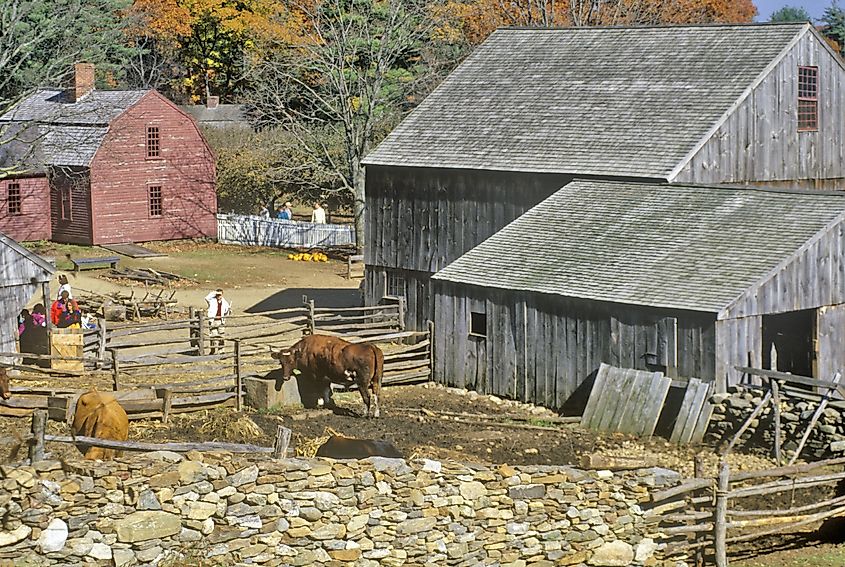
Much of Massachusetts is deeply historical, with nationally registered historical sites and museums dedicated to preserving the past. Sturbridge takes transporting back in time to an entirely new level with its Old Sturbridge Village. This living museum spans over 200 acres, includes 40 historical buildings, and portrays life in Sturbridge between 1790 and 1840. It is the site of the Fenno House, an early 1700s textile exhibit, and the Asa Knight Store, a shop built in 1810 that originally carried goods from around the world. Fun fact: the town is 22 miles southwest of the city of Worcester, and its name originates from Stourbridge, England.
Deerfield
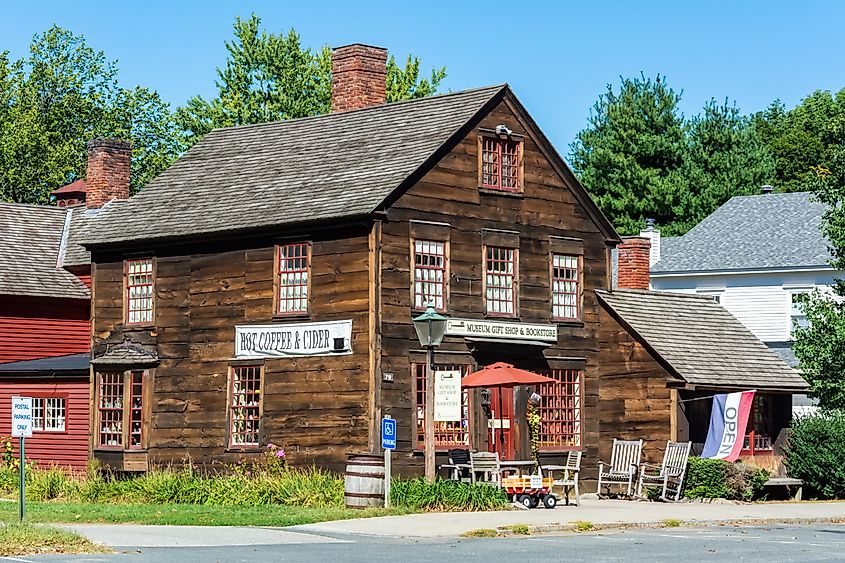
Situated in Franklin County, Deerfield became incorporated in 1673. Walk onto Old Main Street in town for a mile-long trek back in time. This northern part of Deerfield is called Historic Deerfield, and it is like a perfectly preserved bubble of the past. It is home to the Flynt Center of Early New England Life and centuries-old restored houses still in their original building sites. The Stebbins House, built in 1799, showcases Federal period architecture and elements inspired by ancient Roman and Greek design. Built in 1760, the Hall Tavern is an active museum, providing open-hearth cooking classes and demonstrations.
Pittsfield
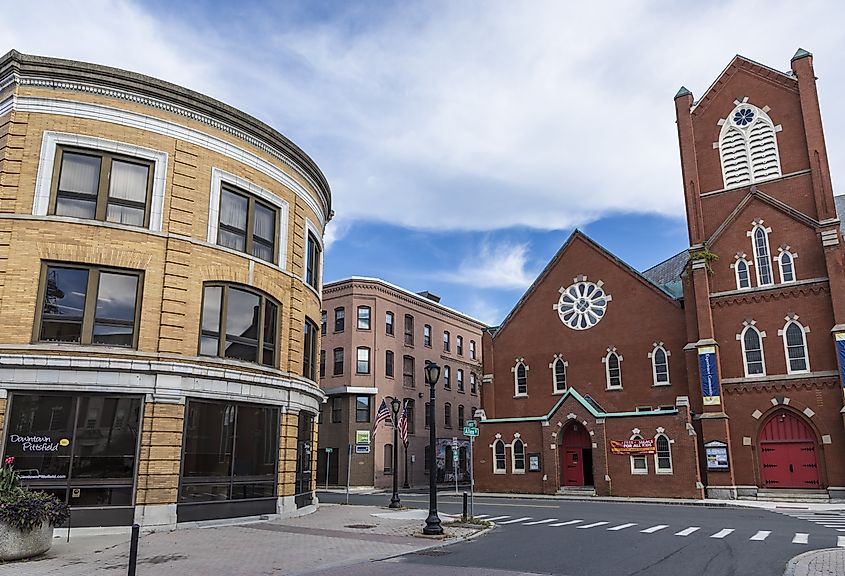
For over a decade, Pittsfield was home to Moby Dick author Herman Melville. Pittsfield is a city in Berkshire County, located in western Massachusetts. It rests on the headstreams of the Housatonic River. Visitors can tour the Arrowhead House in Pittsfield, where Herman Melville resided from 1850 to 1863. He wrote Moby Dick and several other works during his time in Arrowhead.
The city is also home to some other historical sites, such as the Hancock Shaker Village. It was the third of nineteen major Shaker villages established in the U.S. and was home to 300 members. Wahconah Park, constructed in 1919, is a historic baseball park that has hosted over a dozen independent and minor league baseball teams. After playing at Wahconah Park, over 200 ballplayers have made it to the Major Leagues.
Lenox
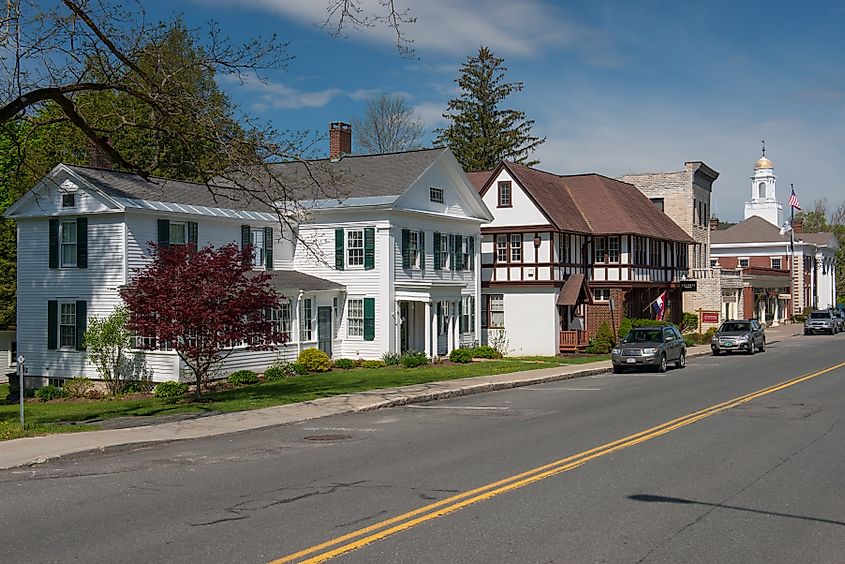
The city of Lenox was largely shaped by the Gilded Age, and its influence is prevalent in the buildings and the stories of those who once lived there. Lenox lies in the Berkshire Hills south of Pittsfield. It was settled in 1750 and originally named Yokuntown. Edith Wharton, the first woman to win a Pulitzer Prize, lived in Lenox for a decade in a house called The Mount. She wrote some of her best works in this house, which is now a museum dedicated to keeping her spirit alive.
Near The Mount is Ventfort Hall, one of the many mansions where New York and Boston elites vacationed in the summer and fall. The building is now a museum of the Gilded Age, highlighting America from the 1870s to 1900. In the following century, many travelers arrived at Lenox on the Berkshire Scenic Railway. Built in the 20th century, the historic railroad station offers guided tours of the station, the cab in the locomotive, and even a jitney ride on the museum grounds.
Lexington
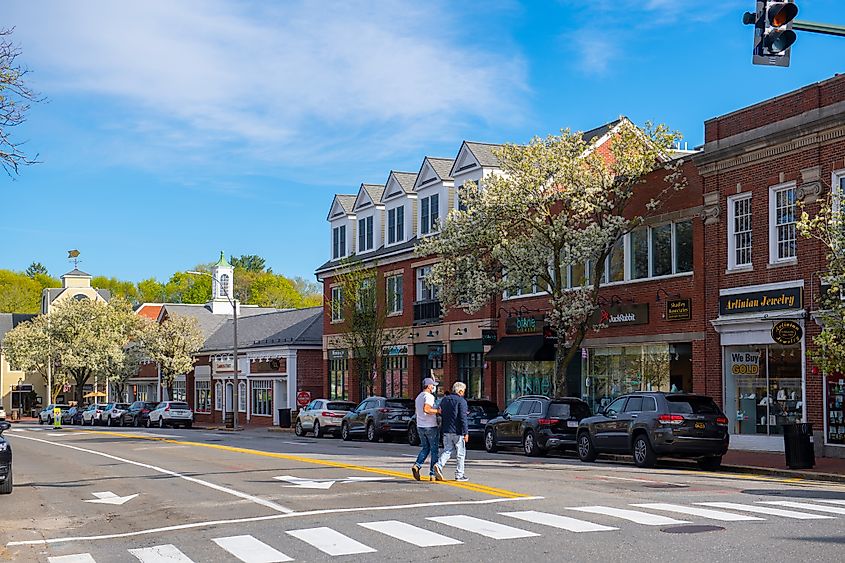
Known as the “Birthplace of American Liberty,” Lexington is where the first military engagement of the American Revolution took place. Settled in 1640, this historic town invites visitors to walk in the footsteps of Sam Adams, Paul Revere, and John Hancock. Key landmarks include the Buckman Tavern, where militia members gathered before the battle, and the Hancock-Clarke House, where John Hancock and Sam Adams stayed the night before the British troops arrived. Other must-see sites are the Centre Depot and the Munroe Tavern, which served as a British field hospital during the Revolution.
For an even deeper dive into Lexington's pivotal role in American history, visit the Minute Man National Historical Park, which preserves the sites and stories of the opening battles of April 19, 1775. The park's trails and exhibits bring the events of the Revolution vividly to life, making it a powerful experience for history enthusiasts. Lexington’s well-preserved landmarks and immersive experiences make it an essential stop for anyone eager to explore the roots of American independence.
Ipswich
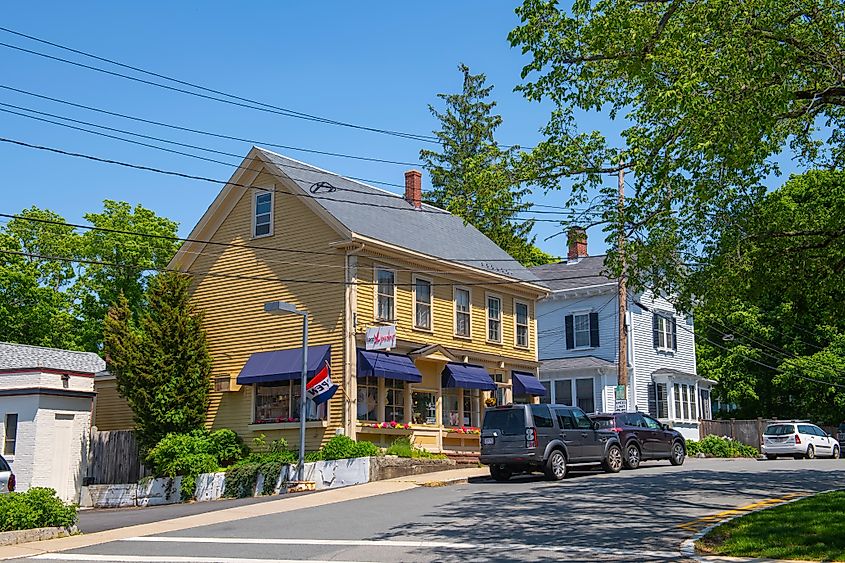
On the Massachusetts North Shore is the town of Ipswich, America’s best-preserved Puritan town. This town features one of the largest collection of remaining 17th-century houses in the U.S.. Walking tours are available to immerse oneself into the history of Ipswich’s oldest historic neighborhoods. Tour the well-preserved streetscapes of the East End, High Street, South Green, and Meeting House Green neighborhoods. Each district boasts dozens of landmarks, from the 1834 Stephen Baker House to the 1770s town jail.
Discover 400 years of history in the Ipswich Museum. Collections in the museum include fine and decorative art celebrating the historical and architectural significance of the town. Part of the museum’s exhibits include the Heard House, built around 1800, the Whipple House, built in 1677, and the Alexander Knight House, built as a 17th-century reproduction house.
Wrapping Up
Massachusetts is uniquely historical. Visiting its various towns feels like stepping into a completely different time zone, with its well-preserved houses like those in Ipswich or the Revolution at the Minute Man National Historical Park that creates the feeling of being in battle during the American Revolution. Visiting Salem’s Witch House and Witch Museum feels like going back to the 1600s. Cities like Sturbridge are immensely immersive with its large Old Sturbridge Village. Massachusetts is a history lover’s dream with so many stories to share.










